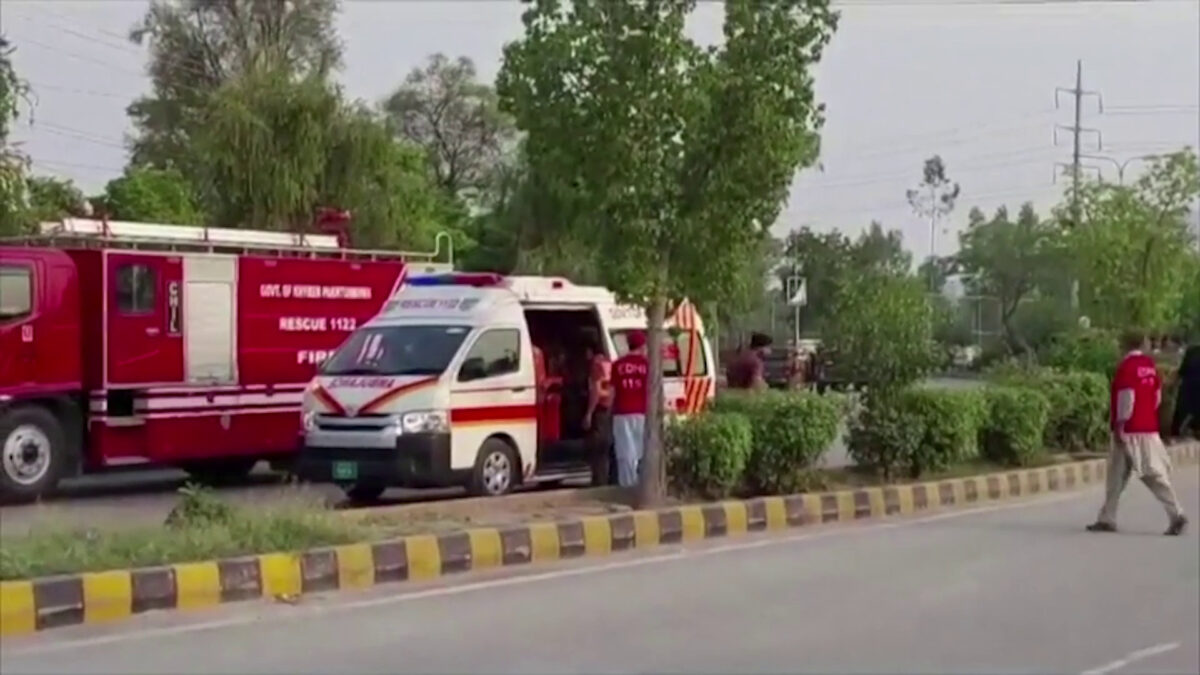The Taliban’s charge d’affaires for Afghanistan’s embassy in Islamabad, Sardar Ahmad Shakib, expressed skepticism regarding Pakistan’s judgment on the perpetrator of the Bannu attack, casting doubt on the validity of a paper identity card presented as evidence that an Afghan national carried out the suicide bombing.
In an interview with Amu, Shakib questioned the authentication of the identity paper and highlighted the need for further discussion on the matter. The deadly suicide attack occurred three days ago in Bannu City, Khyber Pakhtunkhwa province, resulting in two fatalities and 10 injuries.
The Foreign Office of Pakistan summoned the Taliban’s charge d’affaires on Tuesday, asserting that the attack was perpetrated by an Afghan national, a claim contested by Shakib. He raised concerns about the suspect’s possession of the paper and questioned the discovery of a paper birth certificate after the individual was killed in the explosion.
However, Pakistani media reported that the Foreign Office presented four demands to the Taliban’s charge d’affaires, with the primary one being the arrest and surrender of Hafiz Gul Bahadur, the commander of a faction of Tehreek Taliban Pakistan (TTP).
Shakib asserted that the recent attack was not coordinated with the Taliban and suggested that such accusations are raised to serve political goals.
Sher Mohammad Abbas Stankzai, deputy foreign minister of the Taliban, commented on the situation, stating, “They raise these issues to advance their political goals. You see daily that they accuse, impose requirements, and put pressure; similar to the issue of immigrants or blocking the containers of merchants.”
Hafiz Gul Bahadur, considered the commander of a group of fighters from North Waziristan, has a complex history, having been an ally and deputy of Tehreek-e-Taliban Pakistan in late 2007 before distancing himself due to internal rivalries. The Pakistani media reported a drone attack on a residence in Khost, Afghanistan, targeting members of the Gol Bahadur group in August 2023.
Political experts and analysts expressed concerns about the potential dangers posed by the relationship between the Taliban and TTP, emphasizing the need for increased surveillance along the Durand Line to prevent the movement of terrorist groups.
“The favors that TTP gave to the Taliban, now the Taliban are giving them room to implement their next plans on Pakistan, inside Afghanistan and in Central Asia countries. Therefore, it is a potential danger in Afghanistan today,” said Bashir Ahmad Tahyanj, a political affairs analyst.
“Instead of them pressing charges, it would be good if they put the Durand Line under surveillance so that terrorist groups cannot cross it,” said Sarwar Niazi, a political affair analyst.
The interim government of Pakistan claimed a surge in terror attacks since the Taliban assumed power in Afghanistan in August 2021, attributing a 60% increase in attacks and a staggering 500% rise in suicide attacks to the situation across the border. While Islamabad accuses Afghanistan and the Taliban of facilitating these attacks, the Taliban denies permitting any individual or group to use Afghan soil against Pakistan.





